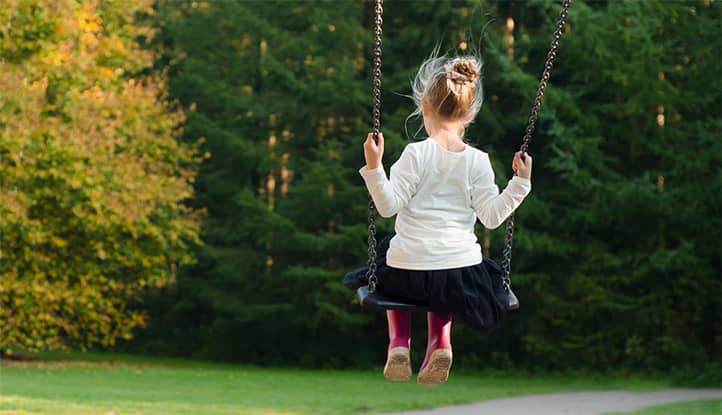According to research, about 30-50% of the population can be classified as introverts. This means a significant portion of children also possess introverted traits. For parents, understanding the characteristics of introversion is crucial to providing the best possible environment for their child’s growth and development.
Introversion is an innate personality trait characterized by a tendency to immerse oneself in the inner world of thoughts and feelings. Introverts draw energy from solitude and quiet activities, unlike extroverts, who recharge through social interactions.

Signs of Introversion in Children
A quiet voice in a noisy world often goes unheard. Introverted children, like rare pearls, hide their value in the depths of their inner world. Their unique perspective on the surrounding reality forms a distinct set of behavioral patterns, emotional reactions, and social preferences. Understanding who an introvert is plays a key role in supporting these characteristics.
Introversion is expressed not only in an apparent inclination for solitude but also in how information is processed, responses to stimuli, and the way relationships with the world are built. Each introverted child is unique, and their characteristics can vary depending on the situation and environment.
Awareness of the signs of introversion is the first step in accepting and supporting the child. It opens the door to deep understanding between parents and children, allowing a nurturing environment where an introverted child can flourish without feeling pressured to conform to extroverted societal norms.
Behavioral Characteristics
Introverted children often display the following behavioral patterns:
- Prefer to play alone or with a small group of close friends.
- Need to “recharge” after social interactions.
- Tend to deeply immerse themselves in their interests and hobbies.
- May appear as “dreamers” or “lost in thought.”
Emotional Expressions
The emotional sphere of an introverted child has its own characteristics:
- Deeply feel emotions, even if they aren’t always obvious to others.
- Have a tendency toward reflection and analysis of their feelings.
- May find it challenging to express emotions in words, especially in stressful situations.
- Sensitive to the emotional state of others.
Social Preferences
In the social sphere, introverted children usually:
- Prefer small groups or one-on-one interactions.
- May feel uncomfortable in new social situations.
- Observe before engaging in an activity.
- Value deep, meaningful conversations over superficial ones.

Pros and Cons of Introversion
Introversion, like a two-sided coin, carries both unique gifts and certain challenges. This personality trait shapes the child’s worldview, influencing their interaction with the surrounding world and themselves. A deep understanding of both sides of introversion allows parents and educators to unlock a child’s full potential.
Still waters, as they say, run deep. Introverted children often possess a rich inner world that fuels their creativity and original thinking. Their ability to focus and self-reflect can form a foundation for remarkable achievements in the future.
However, like a ship in a stormy sea, an introverted child may face challenges in an extroverted world. Social expectations and group activities can cause discomfort and fatigue. Recognizing these challenges is the first step to overcoming them.
Balancing the strengths of introversion with adapting to social demands is key to raising an introverted child. This process requires patience, understanding, and a creative approach from parents and educators.
Strengths of Introverted Children
Introversion provides several advantages that are important to recognize and develop:
- Deep thinking: Introverts tend to be analytical and reflective.
- Creativity: Solitude often nurtures creative abilities.
- Empathy: Many introverts possess a high level of emotional intelligence.
- Independence: They have the ability to entertain themselves and solve problems independently.
- Attention to detail: They are inclined toward deep focus on tasks.
Challenges Introverts May Face
Despite their strengths, introverted children may encounter certain challenges:
- Social anxiety: Discomfort in new or large social groups.
- Misunderstanding: Others may misinterpret their need for solitude.
- Societal pressure: An extroverted-oriented world can create stress.
- Difficulty expressing themselves: Particularly in situations that require quick responses.
- Overstimulation: Due to excessive stimulation in noisy or busy environments.
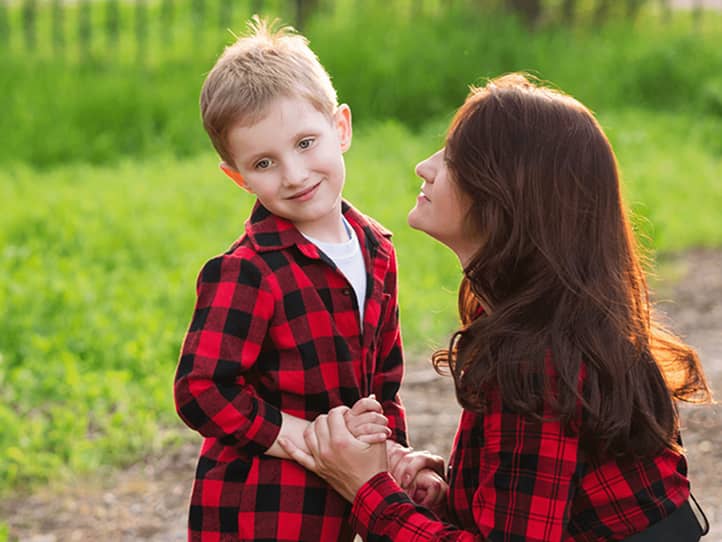
Parenting Strategies for an Introverted Child
Raising an introverted child is like cultivating a rare plant—it requires special attention to environmental conditions and individual needs. Creating a supportive atmosphere for an introvert’s development is the art of balancing respect for their nature with preparation for life in society.
A home for an introverted child is not just a residence but a whole universe where they can be themselves. Organizing the space to meet the need for solitude and quiet is essential for their emotional well-being. It’s a place where they recharge and form their understanding of the world.
Parental sensitivity to an introverted child’s life rhythm helps prevent emotional burnout. Recognizing signs of overload and providing opportunities for “recharging” are crucial skills for parents. This builds a child’s trust in their internal sensations and needs.
Support in social situations requires a special approach. Rather than pushing the child toward active socializing, it’s more effective to create comfortable conditions for gradual social skill development. This may include discussing upcoming events, devising strategies for challenging situations, and providing “escape routes.”
Creating a Comfortable Home Environment
Home should be a place where an introverted child feels safe and can recharge:
- Provide a quiet space: Create a nook for solitude where the child can be alone.
- Respect the need for quiet: Avoid filling the home with constant noise; allow silence to be part of daily life.
- Organize calm family activities: Reading, board games, and creative activities are excellent family bonding opportunities.
Respect for the Need for Personal Space and Time
Acknowledging and respecting an introverted child’s need for solitude is essential:
- Avoid forcing constant interaction: Let the child spend time alone.
- Establish a balance: Alternate social activities with rest periods.
- Discuss boundaries: Help the child understand and express their need for personal space.
Support in Social Situations
While introverts may feel uncomfortable in social interactions, it’s essential to help them navigate these situations:
- Prepare for social events: Discuss upcoming events in advance so the child knows what to expect.
- Provide “escape routes”: Agree on a signal the child can use if they need a break.
- Encourage gradual expansion of social circles: Start with small groups and brief meetings.

Developing Social Skills
Socializing an introverted child is a gradual, mindful process. The development of social skills in introverts happens at their own pace, which should be respected and supported. This process values the quality of interactions over their quantity.
Teaching communication skills to an introverted child involves not only verbal communication but also understanding nonverbal cues, emotional intelligence, and the ability to set boundaries. These skills help introverts feel more confident in social situations while staying true to themselves.
Group activities, chosen with consideration for the child’s interests and comfort, can serve as excellent platforms for practicing social interaction. Whether it’s a small book club, a science club, or a creative workshop, such activities allow introverts to connect with others in a context they find meaningful and understandable.
Gradual Expansion of Social Circles
For introverted children, it is essential to develop social skills at a comfortable pace:
- Start with close friends: Encourage friendships with one or two children who share similar interests.
- Use the child’s interests: Find clubs or groups related to their hobbies.
- Gradually increase interaction time: Begin with short meetings and gradually extend them.
Teaching Communication Skills
Help the child develop necessary social skills:
- Practice basic social scenarios: Role-play common situations, such as introducing themselves or asking to join a game.
- Teach nonverbal communication: Help the child understand body language and facial expressions.
- Develop active listening skills: Teach the child to ask questions and show interest in others.
Encouraging Participation in Group Activities
Participating in group activities can be beneficial for social development:
- Choose structured activities: Clubs with a set schedule and rules may be more comfortable for introverts.
- Consider team sports: These activities foster cooperation but allow for an individual role.
- Encourage volunteering: This can be a less stressful way to engage in social interactions.
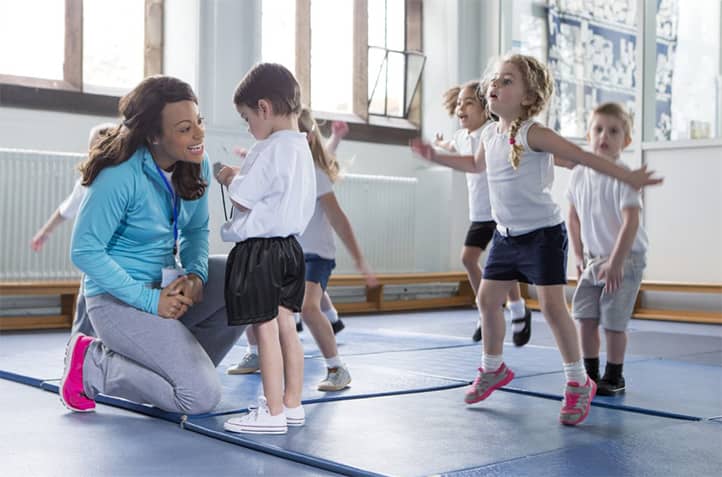
Education and Extracurricular Activities
The educational environment for an introverted child is not only a place for acquiring knowledge but also a space for personal growth and self-discovery. Choosing a suitable school or form of education can significantly impact an introverted student’s academic success and emotional well-being.
An individualized approach in educating introverts does not imply isolation. On the contrary, it means creating conditions in which the child can fully participate in the learning process without experiencing constant stress from social interactions. This might include opportunities to work in small groups, the availability of quiet zones for rest, and respect for the need to reflect before responding.
Extracurricular activities play an important role in the development of an introverted child, offering opportunities to deepen interests and develop talents. Choosing activities that match their temperament helps them find their place in the world and build confidence.
A balance between academic activities and free time is especially important for introverted children. The ability to immerse themselves in their interests, be it reading, drawing, or building, not only provides rest but also fosters independence and creative thinking.
Choosing an Appropriate Educational Environment
The educational setting plays a key role in the development of an introverted child:
- Evaluate class size. Smaller classes may be more comfortable.
- Pay attention to teaching methods. Schools that use project-based or individualized learning tend to be a better fit for introverts.
- Discuss your child’s needs with teachers. Help educators understand your child’s unique characteristics.
Choosing Extracurricular Activities
Choose activities that align with the child’s interests and temperament:
- Individual sports. Swimming, tennis, and gymnastics can be great options.
- Creative activities. Drawing, music, and writing allow for self-expression without constant social interaction.
- Science clubs. For children interested in science, these can be a wonderful opportunity to connect with like-minded peers.
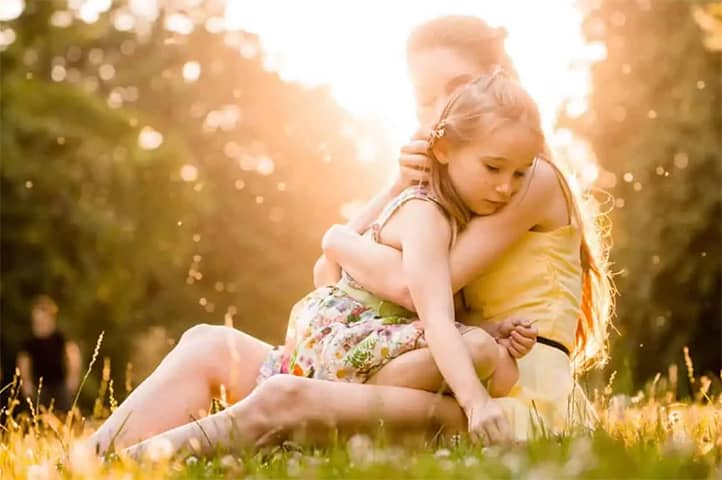
Emotional Support and Communication
The emotional world of an introverted child is a deep ocean of feelings and thoughts, often hidden from a casual glance. Developing emotional intelligence in such children not only helps them better understand themselves but also creates a foundation for deeper relationships with others.
Active listening becomes a key skill for parents of introverted children. The ability to hear not only words but also the emotions behind them helps establish a strong connection with the child. Creating an atmosphere in which the child feels safe sharing their thoughts and feelings requires patience and genuine interest from parents. This is a process of mutual learning and growth.
Expressing emotions is often a challenging process for an introverted child. Therefore, parental support in developing a vocabulary for describing feelings and encouraging various forms of self-expression, including creativity, helps the child find their unique voice.
Developing Emotional Intelligence
Help your child understand and express their emotions:
- Label emotions. Assist your child in identifying and naming their feelings.
- Discuss emotional reactions. Talk about different situations and the emotions connected to them.
- Teach self-regulation techniques. Introduce your child to methods of relaxation and self-soothing.
Creating Open Dialogue with Your Child
Building a trusting relationship is crucial:
- Be available for conversations. Show a readiness to listen when your child wants to talk.
- Don’t rush. Allow your child time to formulate their thoughts.
- Avoid judgment. Accept the child’s feelings without criticism.
Active Listening Techniques for Parents
Active listening helps your child feel heard and understood:
- Focus fully on your child. Put away the phone and other distractions.
- Use non-verbal signals. Maintain eye contact and nod to show you are listening.
- Paraphrase what was said. This helps ensure you understood the child correctly.

Balancing Introversion and Social Adaptation
Finding a balance between respecting a child’s introverted nature and preparing them for life in society is a delicate art of parenting. This balance is not static; it constantly changes as the child grows and develops, requiring flexibility and attentiveness from parents.
Accepting a child’s introversion does not mean limiting their social experiences. On the contrary, it forms the foundation for healthy social development. When a child feels their unique traits are valued and respected, they are more confident in exploring the world beyond their comfort zone.
Expanding an introverted child’s social horizons is a gradual process, similar to climbing a mountain. Each step, however small it may seem, brings the child closer to social competence.
An important aspect of raising an introverted child is also developing their ability to stand up for their interests and rights, express their needs, and set boundaries in a world often geared toward extroverts.
The Importance of Accepting the Child’s Nature
Accepting a child’s introversion is a key aspect of their upbringing:
- Don’t try to “fix” introversion. It is not a flaw but a personality trait.
- Emphasize strengths. Focus on the advantages of introversion.
- Be a model of self-acceptance. If you are also an introvert, demonstrate acceptance of your own nature.
Gradual Expansion of the Comfort Zone
Help your child gradually adapt to various social situations:
- Set realistic goals. Start with small steps outside their comfort zone.
- Celebrate achievements. Recognize every time the child overcomes their fear or discomfort.
- Provide choices. Let the child decide when they are ready for new challenges.
Teaching Self-Acceptance and Confidence
Building healthy self-esteem is crucial for introverted children:
- Emphasize the value of diversity. Explain that different personality types complement each other.
- Teach assertiveness. Show your child how to express their needs and set boundaries confidently and politely.
- Encourage self-discovery. Help your child explore their interests and strengths.
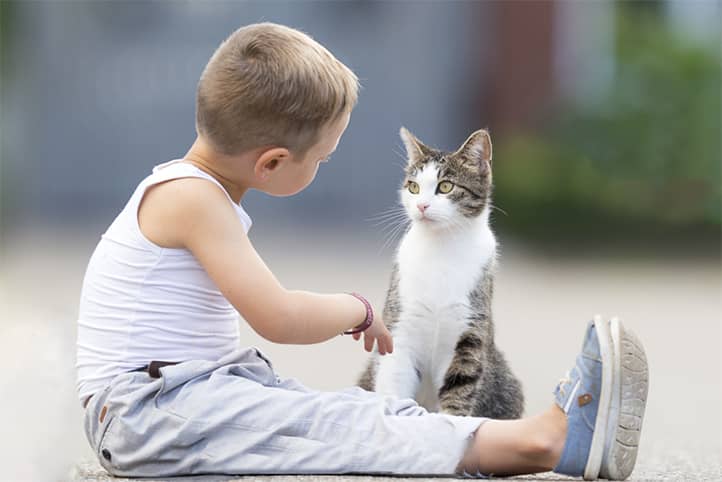
Working with Stereotypes and Social Pressure
Introverted children often face misunderstanding and pressure from society, which may undervalue their unique qualities. Overcoming stereotypes about introversion is not only a personal task for the child and their family, but also a societal mission to create a more inclusive environment for all personality types.
Challenging Myths About Introversion
There are many misconceptions about introversion in society that can negatively affect a child’s self-esteem. It is important to dispel these myths:
1. Myth: Introverts are antisocial
- Reality: Introverts are capable of deep social connections but prefer quality over quantity.
2. Myth: Introversion is shyness
- Reality: Introversion and shyness are different. An introvert can be confident but prefers fewer social interactions.
3. Myth: Introverts cannot be leaders
- Reality: Many successful leaders are introverts, often known for their thoughtful approach to problem-solving.
4. Myth: Introverts need to “come out of their shell”
- Reality: Introverts do not need to change; they simply need to learn to use their strengths.
Protecting Your Child from Negative Judgments
Introverted children may encounter misunderstanding and criticism from others. Here are some strategies to help protect your child:
- Educate those around them. Explain the traits of introverted children to teachers, relatives, and friends.
- Teach your child to assert their boundaries. Help them express their needs confidently but politely.
- Be an advocate for your child. Don’t hesitate to step in when their unique traits are not being respected.
- Create a supportive environment. Find like-minded parents, and build support groups.
Cultivating Pride in Their Unique Traits
Help your child not only accept but also take pride in their introversion:
- Share stories of successful introverts. Provide examples of famous introverts who have achieved success in various fields.
- Emphasize unique abilities. Highlight how introversion benefits your child in various situations.
- Encourage self-expression. Support creative ways in which your child expresses their personality.
- Teach appreciation for diversity. Explain that the world needs people with different personality types and ways of thinking.

Conclusion
Raising an introverted child is a fascinating journey filled with discoveries and deep emotional connections. It requires parents to be especially sensitive, patient, and understanding of their child’s unique nature. Recognizing and accepting introversion as a valuable personality trait lays the foundation for healthy development and self-realization.
Creating a nurturing environment that respects an introverted child’s need for solitude and quiet is crucial for their emotional well-being. At the same time, the gradual and gentle development of social skills helps the child learn to navigate a world that is often “designed” for extroverts. Balancing respect for introverted nature with support for social adaptation is a delicate art that parents master in the process of raising their child.
The educational environment and extracurricular activities play a significant role in the development of an introverted child. Choosing an appropriate form of education and activities that align with the child’s interests and temperament promotes their academic success and personal growth. It is important to remember the need for balance between structured activities and free time, which introverts often use for recharging and self-reflection.
Emotional support and open communication are the cornerstones of building trusting relationships with an introverted child. Developing emotional intelligence, practicing active listening, and creating a safe space for expressing feelings help the child better understand themselves and others.
Working with stereotypes and social pressure is also an essential part of raising an introverted child. Parents play a key role in building the child’s confidence in their unique traits and ability to withstand negative social attitudes. Understanding introversion and creating a supportive community significantly ease this process.
Ultimately, the goal of raising an introverted child is to help them grow into a confident, self-sufficient, and happy person capable of realizing their unique potential. Introversion is not a flaw but a special gift, which, with the right approach, can become a source of deep fulfillment and life success.
Remember that every introverted child is unique. Be attentive to your child’s individual traits, trust your intuition, and don’t be afraid to experiment with different approaches. Your love, understanding, and support are the most powerful tools in raising a happy and successful introvert.
